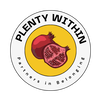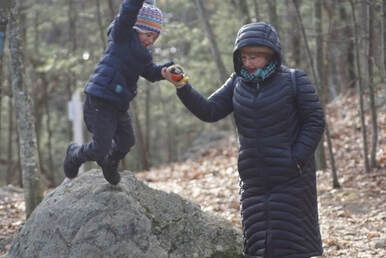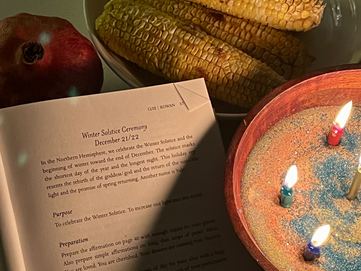|
“The most common way people give up their power is by thinking they don’t have any.”
- Alice Walker (the first Black American woman to win a Pulitzer Prize in fiction for her novel "The Color Purple.") I confess. I have done this - thinking I do not have power. I was one of those people who felt like power was not important to have or aspire to, because in my experience I was never in power. Powerlessness - I learned it in childhood. The powerlessness I learned looked like not seeing my power when in relationship with others or at the best hiding it, treasuring its energy for a time more ripe to be released and expressed in the world. What is different now? I have gotten to know the parts of me that held this belief that I am powerless. Now, I am friends with those parts of me. I have witnessed the pain they held. Now, they trust me to be there with them, not alone anymore in moments feeling in pain and powerless. I have learned that being aware of one’s power means starting to build an important skill for inclusive and authentic leadership. It took me a long time to get to where I am: embracing and leading with my power in relationships - at home and at work. And I did not do it alone - of course! I had so many learning partners on the way here, and I still rely on so many partnerships to sustain my truth. Being in partnership for me means acknowledging that learning happens in relationship with others and I am not alone but part of a broader community of beings that support my growth. So, when did I first become aware of having power and being responsible for its use? I do remember very clearly the moment I got to think about my own power for the first time. It was 2014 and I was pursuing my PhD in sociology at the University of Virginia. I was taking a course on qualitative research methods, specifically on in-depth interviews. And though I had done the readings, these words struck me as very foreign at the time. “You have the power. You as the researcher/interviewer have the power.” Those words stopped me in my tracks. “Wait, what?!” I thought to myself. “I do not understand. What power do I have? I am simply a well-meaning hard-working sincere graduate student who cares about learning and is curious about others. So as a researcher I am just open and in service of my interviewees and research participants. There is no power whatsoever in this relationship.” It makes sense that I had this reaction. During my undergraduate and my first masters degrees, I studied international relations and international economics, where power was recognized mostly as a structural force, something nation states or governments or organizations exerted–not individuals. In this framework, if you were not a politician or working for a government or corporation or an organization, if you were an individual and a student like me, you did not have power. Indeed, there are people who study “soft power”--which is about influence through diplomacy and media. However, that was perceived and taught as inferior compared to ‘hard power’--which was about military might and economic dominance. At the end of the day, I was left with the realization that I had made my own power invisible. Moreover, I also noticed that most of my socialization - at home and at school - worked to keep it that way. “You have power. You have the power.” That phrase landed in my chest as if a seed was put on the ground supporting my heart, waiting to receive nourishment and spring out fully through a young stem, unfolding with leaves and flowers. It was a valuable seed of awareness for the researcher part of me who wanted to honor the relationship with my research participants and all contributors. It offered a reminder to always check my phrasing of questions, how I held space to allow for silence and be welcoming to the different paces at which people responded, whether I held any judgment towards certain answers, or how I analyzed the responses I collected. But sometimes when responses were expressed in numbers, it was difficult to hold that sense of responsibility about my powerful role as the researcher. It was easy to forget sometimes that behind the numbers there were people, humans, faces, lives, souls. And I focused my studies on how organizations gain power, still highlighting the importance of organizational culture and leadership in this process. However, something shifted again after graduating in 2017: I joined a research team at the University of Colorado Boulder, which involved working with design professionals - architects and civil engineers - who were involved in different forms of social justice efforts. Learning about these activist professionals offered the first drops of water and nourishment to my seed of power awareness. I had the privilege to interview, observe and learn from these design professionals who were trying to make sense of their role in society and shape their professions to support social justice. In the process of listening to them, I learned that making visible one’s power, recognizing power in relationships, is a mark of inclusive and authentic leadership. When one’s power is embraced and respected in its many forms, it can be amplified in partnership with others and in community. Yes, it all starts in community and lives in community. Growing this seed of awareness of our own power and tending to it has been possible thanks to many partnerships–with a therapist, my child, a supporting partner, friends, colleagues, pets, and nature. Reclaiming my power was scary at first. There were parts of me who were afraid of having power, holding it, moving around with it, and expressing it. It meant becoming responsible for all outcomes and having the courage to make mistakes and trusting in getting back on my feet over and over. But I started with giving permission to myself to start with holding and working with just a small amount of power. I decided to understand powerlessness as meaning “less power”, so I could start to practice with it. For example, my journey with motherhood has been an ongoing practice with being aware of, learning about and using my power to deepen the connections I have in my life: with my kid, myself and my partner. The “I have the power” seed went into full bloom during my training with the Jai Institute for Parenting. I learned about “power with” parenting, which is different from a “power over” approach in that it recognizes that all have power, the right to hold power, being seen as powerful, even though developmentally and societally the adults - parents or caretakers - have more power in the relationship with children. So now my dance with the power flower in bloom close to my heart looks like this: I embrace my responsibility and I am not afraid of my power to shape my kids’ future, therefore I can provide space and opportunities for my kid to learn about and express their own unique power. In other words, I have learned that allowing myself to embrace my own power meant letting my child embrace theirs. I have developed this awareness of power for some time: in the role of the researcher, partner, mother, team leader. I have seen and experienced how having power has opened the doors for deepening my connection with my kid and in all my relationships. I have seen how managers’ and leaders’ actions impact the self-worth and dignity of employees under them. Power when made invisible, when not recognized in oneself, will end up damaging relationships, weakening connections, and decreasing a sense of belonging that is essential to our future and the next generation of leaders and caretakers. Because invisible power works against those who cannot and those who have not learned to wield their own. So, to sum up: adults, parents, managers - you’ve got the power. Now what? Let others - your kids, partners, friends, coworkers - have some too. Be generous, there is plenty within you and plenty in partnerships. Power is not a scarce resource where one’s accumulation leads to others’ lack. The more we share the more we gain. We all need to practice and learn about our unique power. It is ok to be afraid, AND you don’t have to be alone in the fear. Give one hand to Fear’s twin - Courage, and nurture yourself and the future.
0 Comments
|
AuthorResearcher in and out, passionate colorful advocate of all beings, especially young and small ones, on a journey to make the invisible more visible. ArchivesCategories |

CONTACT | Plenty Within Policies
Copyright © 2020 Joris Gjata. All rights reserved.
No images may be used or reproduced without prior written permission of artist.


 RSS Feed
RSS Feed